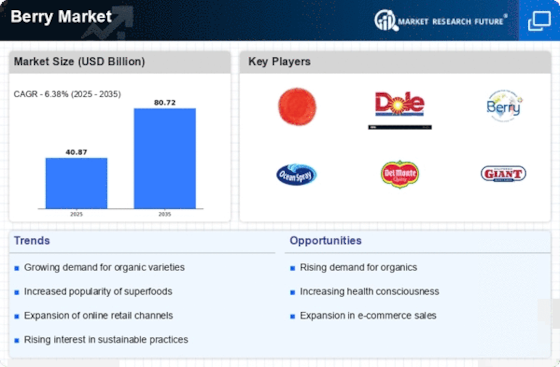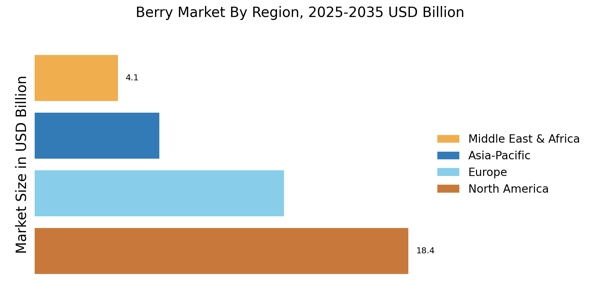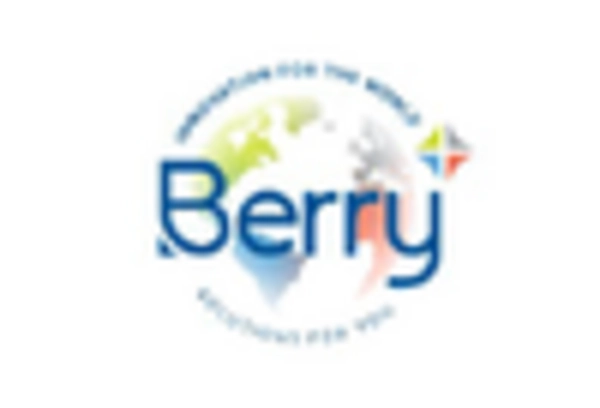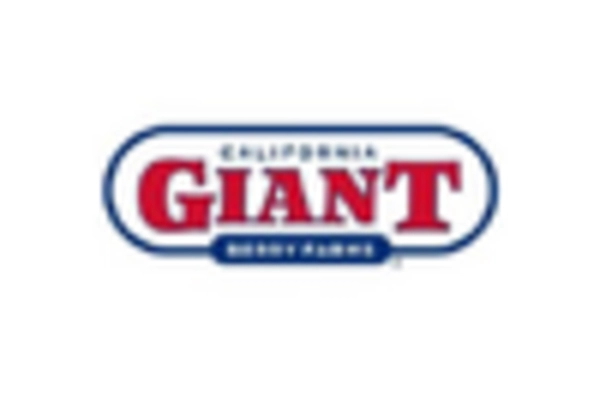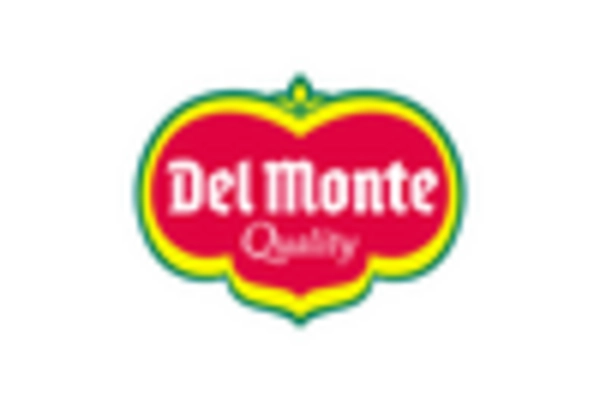Expansion of E-commerce Channels
The Berry Market is witnessing a significant shift towards e-commerce, as consumers increasingly prefer the convenience of online shopping. The rise of digital platforms has enabled berry producers and retailers to reach a broader audience, facilitating direct-to-consumer sales. Recent statistics reveal that online grocery sales have surged, with berries being among the top-selling categories. This trend is likely to continue, as consumers appreciate the ease of purchasing fresh produce online. The Berry Market must leverage this opportunity by enhancing their online presence and optimizing logistics to ensure freshness and quality, thereby capitalizing on the growing e-commerce trend.
Increased Focus on Sustainability
Sustainability has become a pivotal concern within the Berry Market, as consumers increasingly prefer products that are environmentally friendly. This shift is prompting berry producers to adopt sustainable farming practices, such as reduced water usage and organic farming methods. Recent surveys indicate that over 60% of consumers are willing to pay a premium for sustainably sourced berries. This trend not only aligns with consumer values but also enhances brand loyalty and market positioning. As sustainability becomes a key differentiator, the Berry Market must prioritize eco-friendly practices to meet consumer expectations and remain competitive.
Rising Demand for Organic Berries
The Berry Market is experiencing a notable increase in demand for organic berries, driven by consumers' growing health consciousness. As individuals become more aware of the benefits of organic produce, the preference for berries cultivated without synthetic pesticides and fertilizers has surged. Recent data indicates that organic berry sales have grown by approximately 20% over the past year, reflecting a shift in consumer purchasing behavior. This trend is likely to continue, as health-conscious consumers seek out products that align with their values. The Berry Market must adapt to this demand by increasing the availability of organic options, which could potentially enhance market share and profitability.
Growing Popularity of Functional Foods
The Berry Market is benefiting from the rising trend of functional foods, which are perceived to offer health benefits beyond basic nutrition. Berries, known for their high antioxidant content and potential health benefits, are increasingly being incorporated into various food products, including smoothies, snacks, and supplements. Market Research Future suggests that the functional food sector is projected to grow at a compound annual growth rate of 8% over the next five years. This trend indicates a significant opportunity for the Berry Market to expand its product offerings and cater to health-oriented consumers seeking functional ingredients.
Technological Advancements in Cultivation
Technological innovations are transforming the Berry Market, enhancing cultivation methods and improving yield efficiency. Precision agriculture, which utilizes data analytics and IoT devices, allows farmers to monitor crop health and optimize resource usage. This has led to a reported increase in berry yields by up to 30% in some regions. Furthermore, advancements in breeding techniques are producing varieties that are more resistant to diseases and pests, thereby reducing losses. As these technologies become more accessible, they are likely to play a crucial role in shaping the future of the Berry Market, potentially leading to increased production and sustainability.


